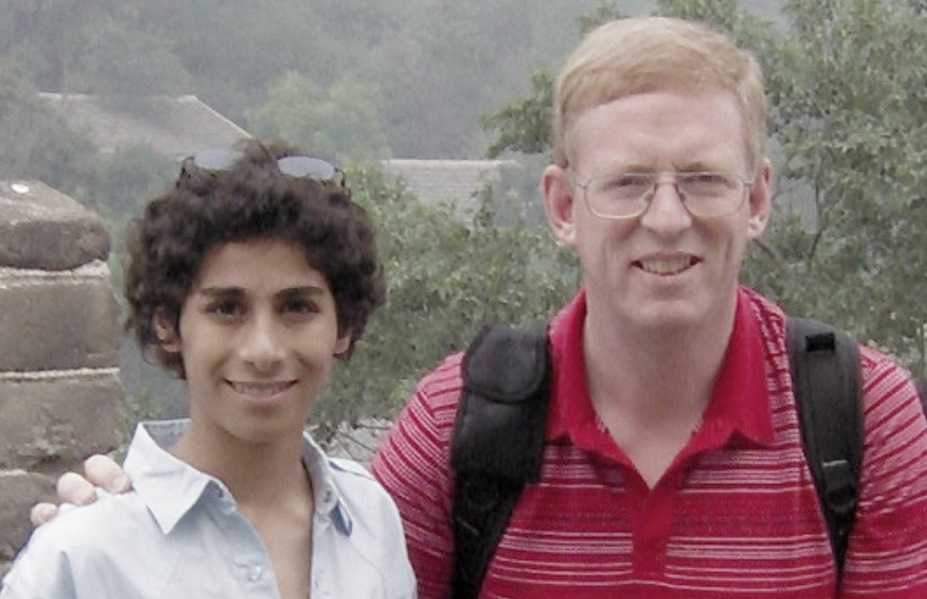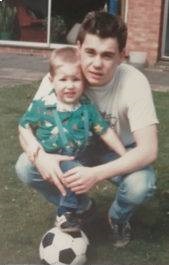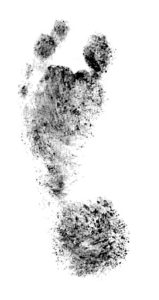There are different types of dads, but they all experience grief when their child dies.
When we talk about someone’s dad, we very often mean their biological father.
But there are many brilliant dads where that’s not actually the case. And for both biological and non-biological dads, there are circumstances when society sometimes doesn’t acknowledge the piercing pain of loss and grief that they experience when their son or daughter dies – psychologists call this disenfranchised grief.
Father’s Day can be a particularly difficult time for any bereaved dad, irrespective of the family background. We asked three dads from very different situations – an adoptive dad, a stepdad and a dad whose daughter was stillborn – to tell us about their feelings on Father’s Day.
David’s adopted son Matthew took his own life aged twenty-one.
I waited so long to join that illustrious group known as ‘dad’. Finally, the arrival by adoption of our new-born baby Matthew meant I was part of that group that celebrate Fathers’ Day. What a joy!
Fast forward twenty-six eventful years – and I approach another Father’s Day no longer taking the title of ‘dad’ as guaranteed. The loss of our precious long-awaited son left me wounded, hurting and asking ‘why?’. Why had we been given the gift of Matthew (meaning gift of God) only to have it taken away? Was the long period of waiting not enough suffering in itself? Yes, we have four other precious children (all adopted), but my eldest had gone – the first child to call me ‘dad’. The pain and emptiness of not having Matthew around is acute when all the others say ’Happy Father’s Day’ but he isn’t there to do so too.
My head has wanted to say it was not worth the effort of adopting him (separate story), but my heart has cried out that every day with him was precious and every memory of being his dad a blessing. Despite the sadness of losing him, my life has been the richer for having him for the time he was with us.
Ian is step-dad to Sam who died aged nineteen in a road traffic accident near the family home.

When I married in Sue in 1988 she had two children, Sam and Katrina, from her previous marriage. Because the children were very young and their father was not on the scene, we were able to be a family pretty much immediately. As soon as we married I became ‘dad’. The children accepted me, and I accepted them as my own. I suppose because they were so young they just wanted security and, most of all, a father’s love. We have had two more children since, but I can honestly say there was never a divide in our family. The night Sam died in 2004 our lives were turned upside down and will never be the same again.
Father’s Day for me is ‘bitter sweet’. Obviously, all occasions become more difficult when you have lost a son or daughter but somehow this day suddenly becomes very personal for dads. I have often felt that other people see my grief as less important than those of ‘real dads’; that Sam’s death wouldn’t affect me quite as much as my wife. Their concern was always for Sue, as if I was just there to ensure she was ok, and very few people ever asked me how I was doing. I wanted to support my family, but I was grieving too.
When you love someone as your own the pain of losing them is huge and life-changing. Sam’s friends never knew until his funeral that I wasn’t his ‘real dad’ – I’m glad about that, as it meant that, to him, I was his ‘true dad’.
I always remember Sam on Father’s Day: he will always be part of my life.
Michael’s daughter Abigail was stillborn.

Losing Abigail in 2008 was the hardest thing my wife and I have ever been through. As a father I lost my daughter, but I also lost much more than that. Many hopes and dreams, the potential to be a “complete family”, a sister for our son, and the potential to get to know this precious life were all taken away on that October weekend.
Stillbirth is still quite a taboo subject and some people didn’t really understand why, as the father, I found it so hard. In some ways I felt this belittled my role as a husband and dad. I felt quite isolated for a time and struggled with quite bad reactive depression for a couple of years too.
In the early years I found Father’s Day tough, feeling Abigail’s absence most acutely. I was especially raw at this time and appreciated the smallest gesture or comment that friends made. Over time it has become easier as I have started to find this a more special time to remember and commemorate what Abigail means to us as a family. My advice to others would be not to have preconceptions about how you should be at these times and just be gentle on yourself.
It helped me to talk about how I was feeling with a few good friends who made space for us. I also started to write poetry and a blog which helped me connect with others who had been on similar grief journeys. We attended Bereaved Parent Support events and this supportive community helped me see that how I felt was okay and natural. My grief remained real but I started to experience it in healthier ways.

If you are a bereaved dad reading this article, no matter what your family background or situation is, we hope that it helps to validate how you feel, particularly (but not solely) around Father’s Day. Of course you feel acute pain and loss, but please know that here you are amongst others who understand, accept and will support you.
If you would like to speak to another bereaved dad, one of our trained volunteer befrienders, then please call Care for the Family on 029 2081 0800.
Share on social media
Help us support families today
At Care for the Family we support couples, parents and those who have been bereaved. If you would be able to make a one off donation to support our work, we would be very grateful. Thank you.
